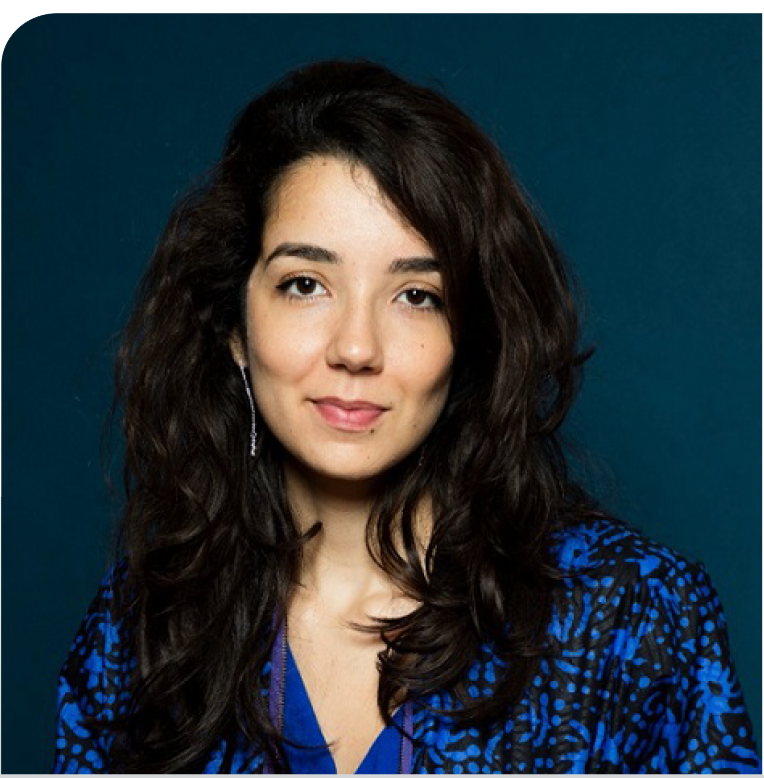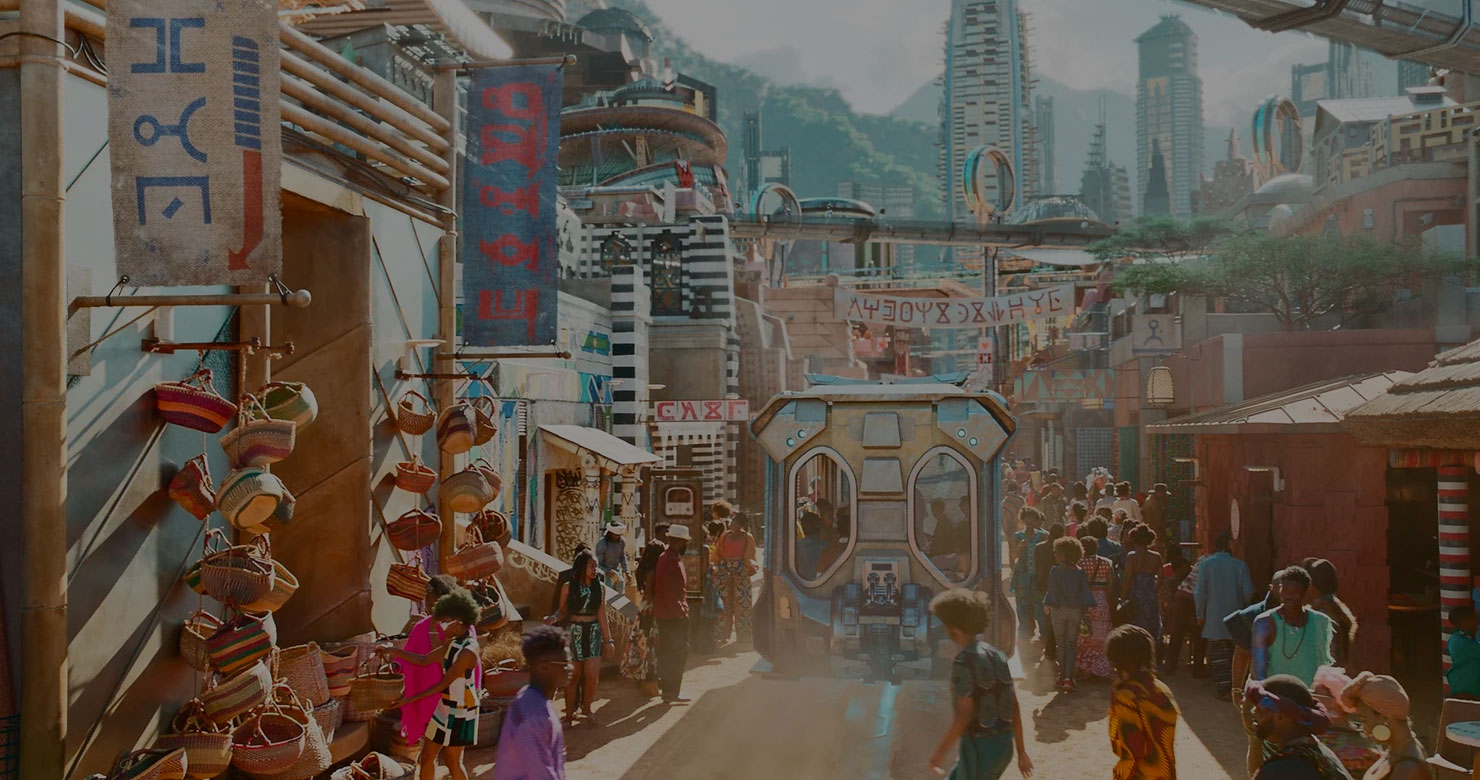When you close your eyes and imagine Africa, what comes to mind? Do you picture futuristic cities and
thriving populations? Do you see ancestral cultures mingling with new realities? Well, if you do, you are a
lucky one, and I hope we will all join you soon. As many African intellectuals, writers, and artists state it, one of our main challenges today in Africa is to free our imagination to fully unleash our potential.
Overcoming our limitations and reclaiming our stories
In 50 years, Africans will account for 40% of the world’s population. By that time, Europe will only represent 4% of the total population. When we envision this future, we immediately think of the challenges we will be facing. Of course, the coming generations will need to be fed, educated, and protected. But what this striking figure also tells us is that change will necessarily come from Africa. It’s a fact : today, there is no longer an African or diasporic question that is not, at the same time, a global question. With this self-realization also comes a responsibility: our future is in our hands.
In 50 years, Africans will account for 40% of the world’s population. By that time, Europe will only represent 4% of the total population. When we envision this future, we immediately think of the challenges we will be facing. Of course, the coming generations will need to be fed, educated, and protected. But what this striking figure also tells us is that change will necessarily come from Africa. It’s a fact : today, there is no longer an African or diasporic question that is not, at the same time, a global question. With this self-realization also comes a responsibility: our future is in our hands.
Africa rising : taking the time to celebrate past and present successful stories
Today, a wind of Afro-optimism is blowing across the continent. This wind brings many successful stories we must take time to celebrate. Morocco’s arrival in the semi-finals of the World Cup has sparked excitement in the Global South and united all Africans. Technological leapfrogs have confirmed Africa’s innovative vocation. Mobile money is a concrete example of how a technology that was first developed by the Kenyan company Safaricom to meet local needs for money transfers, has since inspired reverse innovations around the world.
The African artistic scene is also particularly vibrant. For the Cameroonian historian Achille Mbembe, to renew our stories, we have to look at literature, oral histories and arts, where Africa has been singularly drawn, represented and imagined for the past twenty years. Thinkers have been late in formulating this poetics compared to artistic circles. In these productions, we see a continent that transcends the exotism in which it was confined and that assumes its Africanity while hybridizing it, without complex, with the contributions of the world. Afrobeat music is an example of a successful production that is deeply rooted in African culture while conveying modern references.Thanks to artists like Burna Boy, Wizkid or C-Kay, Afrobeat has gone global and inspired a new generation of African musicians to create innovative music with global ambitions.
Literature has also risen to the top of the rankings. Leila Slimani (Goncourt), Mohamed Mbougar Sarr (Goncourt), Abdulrazak Gurnah (Nobel), David Diop (Booker) and Chimamanda Ngozi Adichie (Women’s Prize for Fiction): these African, men and women, have made the world’s headlines and imposed Africa as a place where powerful stories are told. Through longer stories and multiple characters, African literature plays a crucial role in documenting history, culture and power structures in a nuanced and complex way.
In cinema and visual arts, the rise of ‘Afrofuturism’ depicts a possible future that is technologically advanced but also environmentally sustainable, and socially just. And there are so many other stories (Nollywood’s thriving cinema industry, Moroccan rap’s internationalization…) that this article will certainly not be exhaustive. What we learn from this momentum is that we, Africans, are determined to seize our destiny, to own our stories, to create, at home, for ourselves and excel by shining in the world. As we previously quoted phenomena that are “successful as regards western standards”, we also need to insist here on the importance of being proud of ourselves for ourselves and creating our own vision of success. Storytelling has actually a role to play to do so.
Today, we need narratives that beer link what we already have with what needs to be invented. We need stories that tell our past, make connections between ancestral traditions and recent successes. We need stories that free our imagination, give voice to the voiceless and promote plural narratives. We need to stop thinking that our stories don’t maer in order to encourage new vocations and gain confidence.
Enchanting what’s underestimated to write new stories
“I like chaâbi, countryside cultures, everything that is neglected, dirty, muddy, despised, I like it, I try to do something out of it”. These are the words of Nabil Amraoui, alias Cheb, a young man in his thirties who has shaken the Moroccan musical landscape with his unique style and his psychedelic sounds. With his song كوتوكوتــو, which reached 23 million views and gained recognition, Cheb proposes post-chaabi aesthetics along with a very poetic use of darija, moroccanarabic.
I had the pleasure to interview Cheb two years ago and this sentence struck me. For him, in order to tell stories beer, we have to get rid of our hierarchies, learn to see beauty where we have not been used to seeing it. We must be open to all forms of stories, whether they are oral or wrien, and in all languages. Our heroes and heroines are sometimes right in front of us. We must accept to learn and unlearn daily to dare to start seeing them. Embracing storytelling is a means of self-discovery of introspection. It is an honest way to reconnect with our history while creating new stories. By enchanting what’s close to us and is sometimes underestimated (our languages, sounds, spiritualities, local cultures, landscapes, traditions…) we can reshape our own narratives and contribute to a more inspiring and equitable global future.

Hajar Chokairi (Azell)
Writing professor at Story School
She is a writer, cultural journalist and consultant in the area of civic
technologies. Between 2013 and 2020, she developed the
webmagazine and cultural agency www.onorient.com, promoting
the artistic momentum of North Africa and the Middle-East.
“L’envers de l’été”, her first novel, was published by Gallimard in 2021.

Feeling inspired ?
Take some time to write a paragraph about something you’re proud of and sometimes find underestimated and share it with us at storyschool@um6p.ma



